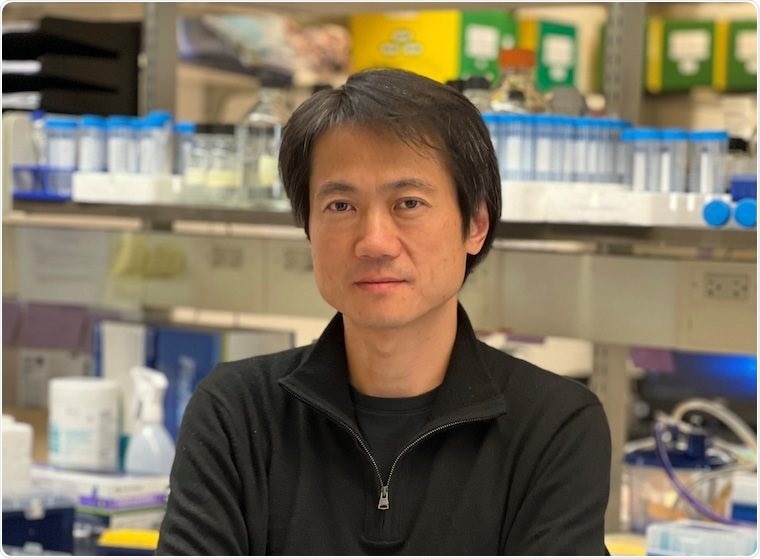Scientists from the University of Virginia School of Medicine have identified how a common gene mutation deprives people of natural protection against cancer.

Hao Jiang, PhD, of UVA Cancer Center, and his collaborators have revealed why a mutation in the UTX gene disrupts cells’ ability to suppress cancer tumors. Image Credit: UVA Health.
Hao Jiang, Ph.D., from UVA Cancer Center, and his colleagues have shown why a mutation in the UTX gene impairs the ability of cells to inhibit tumors. They identified that the gene product forms tiny droplets in cells that help suppress the formation of tumors. However, the mutation disrupts that vital process, which leaves affected people vulnerable.
The new insights into this vulnerability will enable doctors and scientists in their pursuit of optimized ways to fight and prevent cancer.
How UTX inactivation causes human cancers remained elusive, as we did not know its key molecular activity that is critical for tumor suppression, posing a barrier to cancer therapying targeting UTX-related pathways.”
Hao Jiang, PhD, Department of Biochemistry and Molecular Genetics, UVA Cancer Center
“Our work largely solved this mystery. Moreover, it suggests that disruption or alterations of these droplets can profoundly affect how our cells fight cancer. Forming proper droplets is likely to be a fundamental mechanism that maintains cellular health, and we are just beginning to understand,” added Jiang.
Preventing cancer tumors
Jiang’s study offers a captivating peek into a significant means through which human bodies keep them safe from cancer. He discovered that the UTX gene has a crucial role in directing the formation of “condensates” within cells to inhibit tumor formation.
The tiny droplets condense from material in cells similar to how water droplets condense on the outer side of a cold glass. As soon as the droplets form, vital biological processes can occur.
Jiang and his colleagues identified that the droplets are significant not only for inhibiting tumors but also for directing embryonic stem cells—generalized cells that can become highly specialized cells. For instance, a stem cell might become a nerve cell or a bone.
The team identified that for tumor inhibition, the droplets regulate the activity of chromatin, the genetic material found in chromosomes. This ensures chromatin’s “optimal activity,” described the researchers in a new study published in Nature, a prestigious scientific journal. According to them, the interaction “ensures efficient and correct chromatin modifications and interactions to orchestrate a proper tumour-suppressive transcriptional program.”
However, mutation of the UTX gene deprives cells of this crucial ability, which places people with the mutation at the risk of cancer, the researchers noted.
Another crucial result of this study is that UTY, the Y-chromosome equivalent of UTX in men, forms condensates with more solid-like characteristics, turning it less effective in inhibiting cancer. This might be the reason behind the widely noticed phenomenon that men are more prone to cancer than women.
We are very interested in how the condensate properties of UTX are regulated in cells and how other proteins may control cancer through forming droplets. These studies will likely open up new approaches to cancer treatment by regulating these droplets.”
Hao Jiang, PhD, Department of Biochemistry and Molecular Genetics, UVA Cancer Center
Source:
Journal reference:
Shi, B., et al. (2021) UTX condensation underlies its tumour-suppressive activity. Nature. doi.org/10.1038/s41586-021-03903-7.